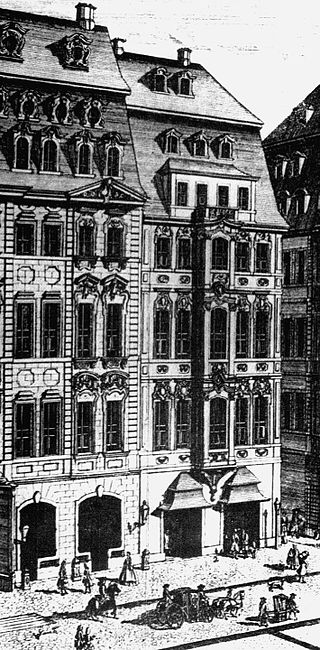Schweigt stille, plaudert nicht, BWV 211
secular cantata by Johann Sebastian Bach From Wikipedia, the free encyclopedia
Remove ads
Schweigt stille, plaudert nicht, BWV 211, also known as the Coffee Cantata, is a cantata by Johann Sebastian Bach. Unlike most of his other cantatas, it is not a religious cantata. It is a cantata about coffee.

History
Bach was the leader of the collegium musicum in Leipzig. He performed concerts in Café Zimmermann, a coffeehouse in Leipzig.[1] The text of the cantata was published by Picander in 1732. Bach may have written the music around 1734.[2]: 919
In Bach's time, coffee was expensive. People also thought that drinking coffee was not a good thing.[3]
Plot
The cantata begins with the narrator telling the audience to be quiet. Schlendrian enters with his daughter, Liesgen. He is angry because Liesgen likes to drink coffee. Schlendrian threatens to take away everything from Liesgen if she does not stop drinking coffee. Liesgen does not care. Finally, Schlendrian threatens that Liesgen will never get a husband if she does not stop drinking coffee. Liesgen promises to stop drinking coffee. Schlendrian leaves to find Liesgen a husband. Liesgen secretly says that her new husband must allow her to make her coffee whenever she wants. The narrator, Liesgen, and Schlendrian sing a closing chorus together.
Remove ads
Structure
The cantata is written for soprano (as Liesgen), tenor (as the narrator), and bass (as Schlendrian) soloists, a flute, two violins, and basso continuo. It has ten movements.[2]: 916–918 Bach never wrote an opera in his life. Even so, the cantata can be thought of as a mini-opera.[4]
- Recitative: Schweigt stille, plaudert nicht
- Aria: Hat man nicht mit seinen Kindern
- Recitative: Du böses Kind, du loses Mädchen
- Aria: Ei! wie schmeckt der Coffee süße
- Recitative: Wenn du mir nicht den Coffee läßt
- Aria: Mädchen, die von harten Sinnen
- Recitative: Nun folge, was dein Vater spricht
- Aria: Heute noch, Lieber Vater, tut es doch
- Recitative: Nun geht und sucht der alte
- Chorus: Die Katze läßt das Mausen nicht
References
Other websites
Wikiwand - on
Seamless Wikipedia browsing. On steroids.
Remove ads
